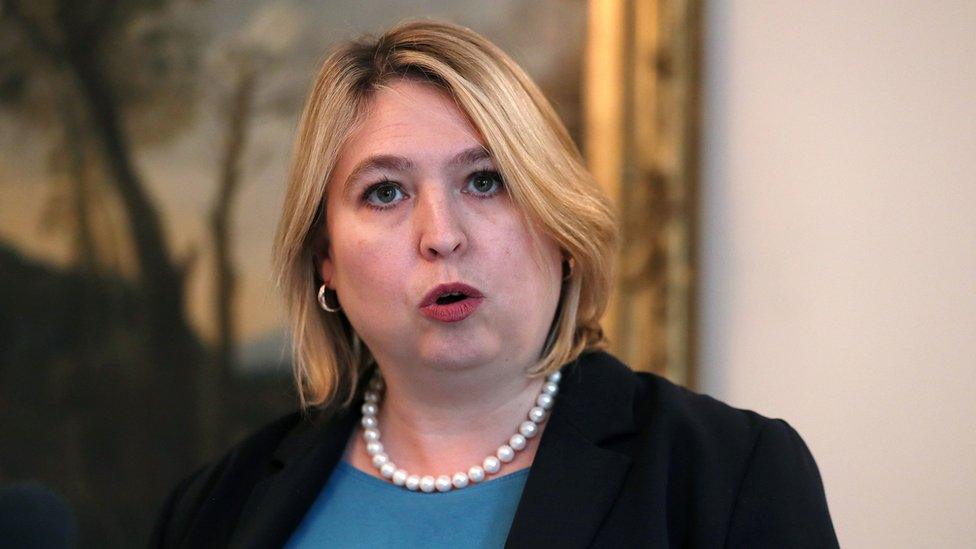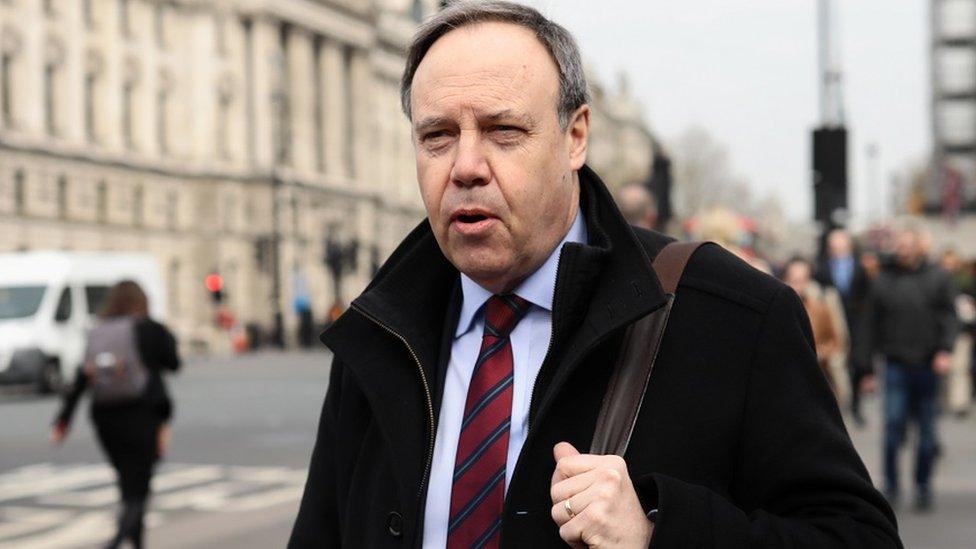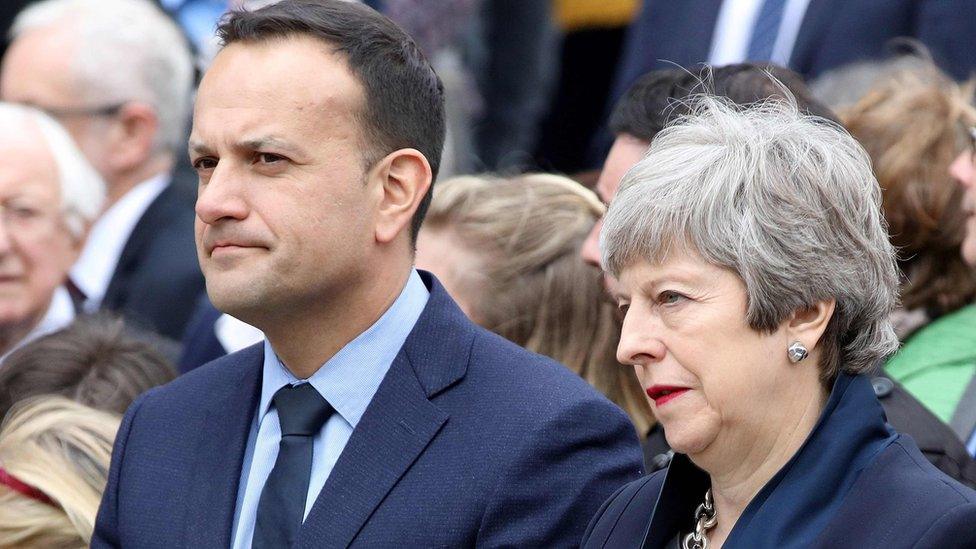Karen Bradley: Northern Ireland talks will not 'be easy'
- Published

Secretary of State Karen Bradley said the talks would need "absolute determination"
Northern Ireland Secretary Karen Bradley has said new talks due to begin at Stormont next week are "not going to be easy".
Northern Ireland has been without devolution since January 2017.
The new talks process aimed at restoring it will begin on 7 May.
Briefing the House of Commons on Monday, Mrs Bradley said there were "no more excuses" for failing to make progress.
"There is no alternative for the people of Northern Ireland other than fully inclusive devolved power sharing," she said.
"It is going to need absolute determination."
Mrs Bradley said the British and Irish governments and the Stormont parties "have a narrow window in which genuine progress can be made" in restoring devolution.
However, the Northern Ireland secretary refused to be drawn on whether this meant that the government is setting a definite deadline for the talks due to convene next week.
Previously, British and Irish sources have indicated that the inter party talks will be reviewed around the end of May.
Stand together
Asked by the DUP's Gavin Robinson whether the government would keep open the possibility of recalling the assembly in parallel with the negotiations, Mrs Bradley said the government could not impose a solution on the parties.
Sinn Féin collapsed the coalition government in January 2017 in protest at the DUP's handling of a green energy scandal.
Since then, several rounds of talks aimed at restoring the Northern Ireland Assembly have failed, with the two parties failing to find a compromise on a number of outstanding issues including Irish language rights and the legalisation of same-sex marriage.
The new talks process will begin on 7 May, while the British-Irish Council, which was set up under the Good Friday Agreement, will convene on 8 May.
Ms Bradley said Northern Ireland needs its political leaders to stand together and work with each other now more than ever.
She added: "Those talks will involve the UK government, the five Northern Ireland political parties who are eligible to form an executive and the Irish government for matters on which they have responsibilities.
"They will be conducted in full accordance with the Belfast Agreement and the well-established three stranded approach to which this government remains committed."

Mary Lou McDonald said if negotiations fail then the UK and Irish governments must step in to fill the political vacuum
Sinn Féin leader Mary Lou McDonald said while her party was ready to engage "energetically and positively" to find a breakthrough, if negotiations fail then the UK and Irish governments must step in to fill the political vacuum.
"We will enter these talks in good heart, in good faith, we will make every effort to arrive at a conclusion but, in the event that we cannot conclude on what are equality issues for citizens, then be very, very clear that the two government as co-guarantors and signatories of the Good Friday Agreement will have to, at that stage, intervene," she said.
"Because time has run out on equality, time has run out on this stalemate, it's not good enough. It's not good enough for any of us. We are very clear on that."
DUP deputy leader Nigel Dodds said his party would "not be found wanting" in any talks process.
"Our preference would have been to have talks in parallel with the restoration of a devolved government," he said.

DUP deputy leader Nigel Dodds said the assembly and executive should be restored immediately
"The previous executive had a cross-party agreement for reforming our hospitals, yet it is sitting on the shelf gathering dust.
"The assembly and executive should be restored immediately so work on the issues which matter to everyone can be progressed alongside talks to resolve the areas where there is contention."
- Published26 April 2019
